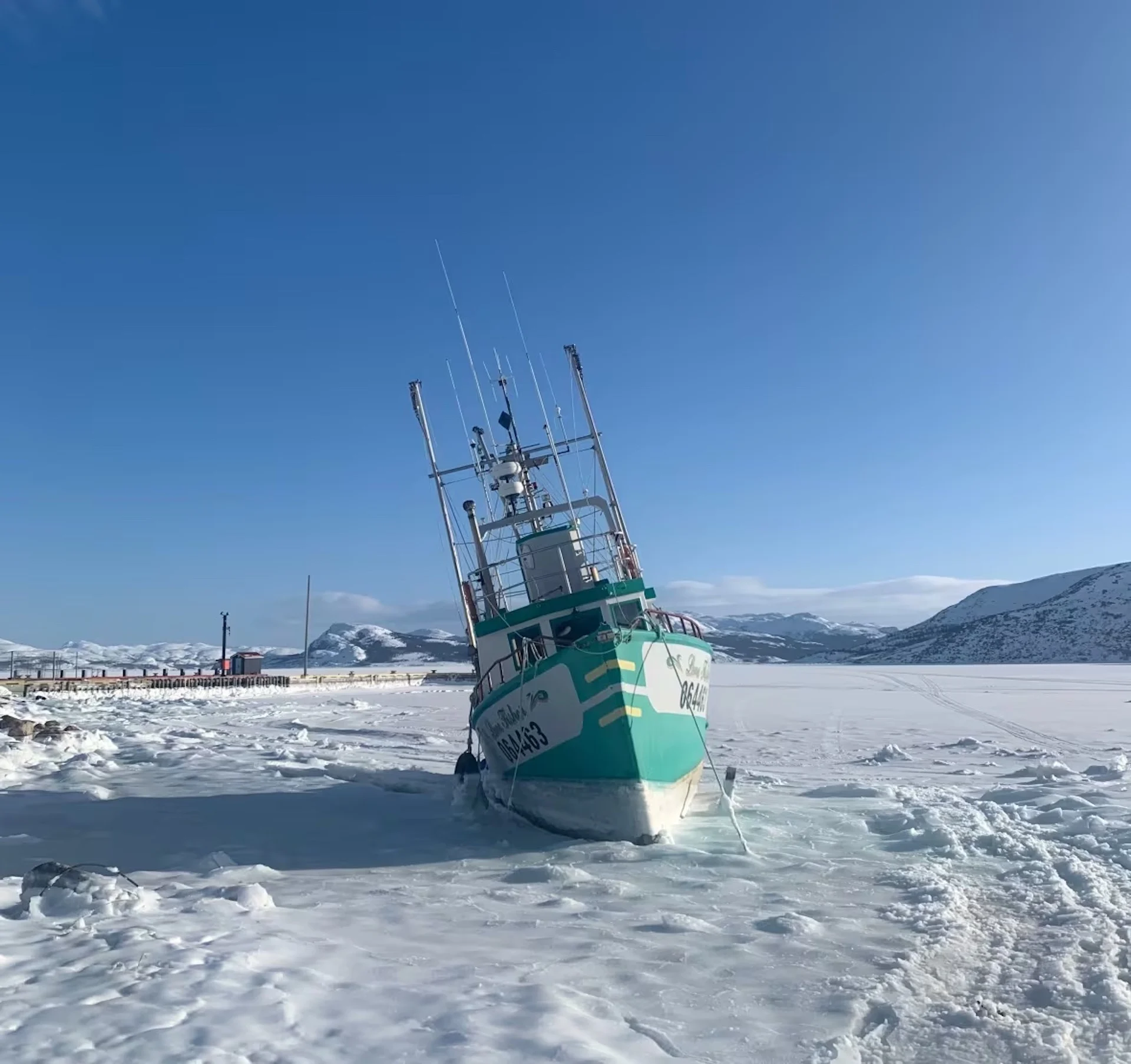
Vanishing sea ice remains as climate change seriously alters Labrador landscape
Climate change is delaying the formation of sea ice along Labrador's north coast, forcing Inuit communities in Nunatsiavut to adapt.
Sea ice in winter months is a vital part of Inuit culture. Warmer temperatures mean limited travel and hunting ability, as locals wait for the sea to freeze over.
SEE ALSO: Earth nears heat record as Arctic sea ice hits historic March low
SmartICE, a social enterprise, brings technology and training to Nunatsiavut and combines it with traditional knowledge, so people can make safe decisions when travelling.
Rex Holwell, an Inuk from Nain who is manager of SmartICE operations in Nunatsiavut, said none of the technology they use is meant to replace traditional knowledge.
"It's data they can take, much like they do, before they go hunting or fishing," he told CBC Radio's The Signal.
The threat posed by disappearing sea ice is one advocates have been sounding the alarm over for several years.

Rex Holwell, the manager of SmartICE operations in Nunatsiavut, says sea ice is like a highway for people in the community. (Hamlin Lampe)
CEO Carolann Harding said SmartICE provides climate change adaptation tools to communities, which can be combined with traditional and local knowledge "to be able to make more informed decisions about traveling on the ice."
"We're now in 35 plus communities across Canada's North, all Indigenous communities. And it's very exciting," she said.
Holwell said SmartICE trains with members of communities, looking for people with knowledge of sea ice, and teaches them how to use SmartICE equipment. They also provide safety and first aid training.
"It's a bit of technical skills. It's a bit of on the land knowledge. It's a bit of public speaking. It's a bit of public relations," said Holwell.
The data on ice thickness is uploaded and then shared with people by posting it in communities, including printing off maps about sea ice and posting it in places like shops, he said.
'Our highway'
Holwell said sea ice enables people to travel in all directions around Nain, allowing them to travel to their hunting grounds, fishing spots and cabins.
"The ice really is our highway," he said. "People are just itching to get out on the sea ice for the freedom."

People in Nain have noticed sea ice is forming later in the year and melting earlier, which is impacting their culture and safety. (Adam Walsh/CBC)
Ron Webb, who is with a search and rescue group, said sea ice is increasingly unpredictable and they need the available information in order to be safe when they are outdoors.
"It's getting to the point where now it's more dangerous every year and unpredictable," said Webb.
People have always had to adapt to the shifting environment but he said it's tough, and it takes an emotional toll when the sea ice isn't around as long because it limits their travel.
"You're stuck in town a lot longer than we usually are and it doesn't go well with us," said Webb.
Future plans
Harding said SmartICE has expanded in the last couple of years and there is more room for growth across Canada.
"What I would like to see in the next couple of years is really expanding deep within those communities," she said.
She also wants to "dig" into the communities they're already present in, and train more people, create employment, and find leaders who she said will be the future of SmartICE.
Impacted culture
Andrew Arreak, who is also with SmartICE, said sea ice used to form in late November but this year it didn't start until December.
"Sea ice is part of our identity. It's part of who we are. We travel on it to go to our hunting grounds, camping grounds, and even to travel to another community," said Arreak.
Jake Kalleo said he used to be able to snowmobile ride on the ice until his birthday in June.
"I'm starting to wonder now, is it better to sell my snow machine to get a boat? It's getting worse and worse every year," said Kalleo.
High school student Teagan Michelin told CBC News in January that she wasn't seeing people able to engage in traditional winter activities.
"It's like losing culture," she said. "If they can't do it, then their mental health will deteriorate."
Michelin said the impacts of climate change is going to have a negative impact on her community and she says people move further north.
WATCH: Polar bears around Hudson Bay may only last until mid-century
Thumbnail courtesy of Adam Walsh/CBC.
The story was originally written by Elizabeth Whitten and published for CBC News. It contains files from The Signal.
